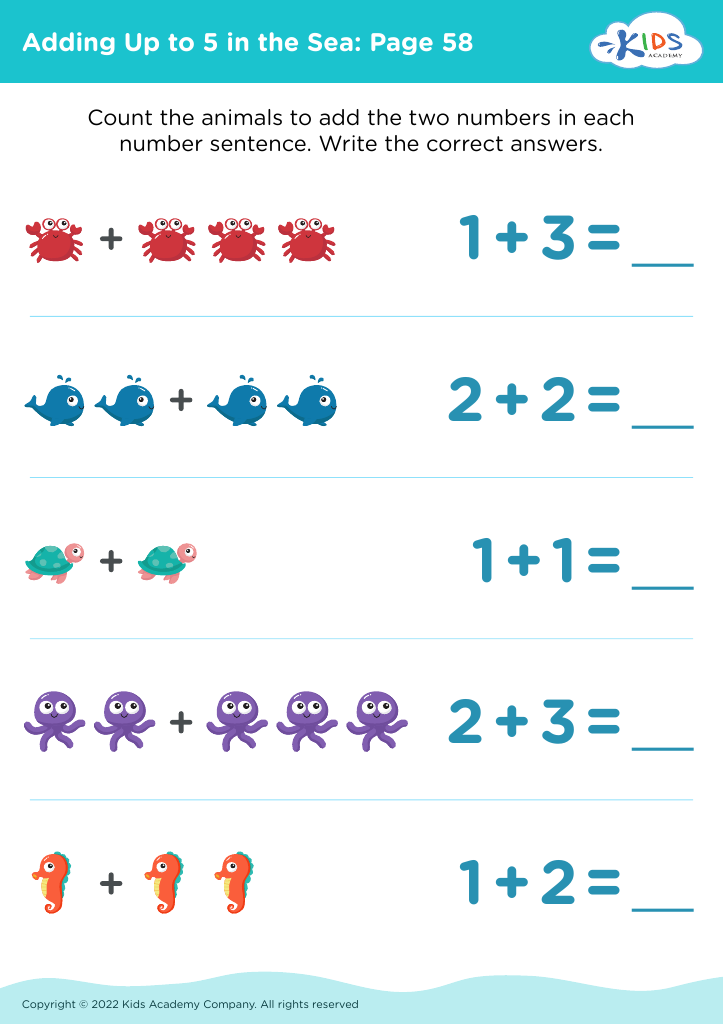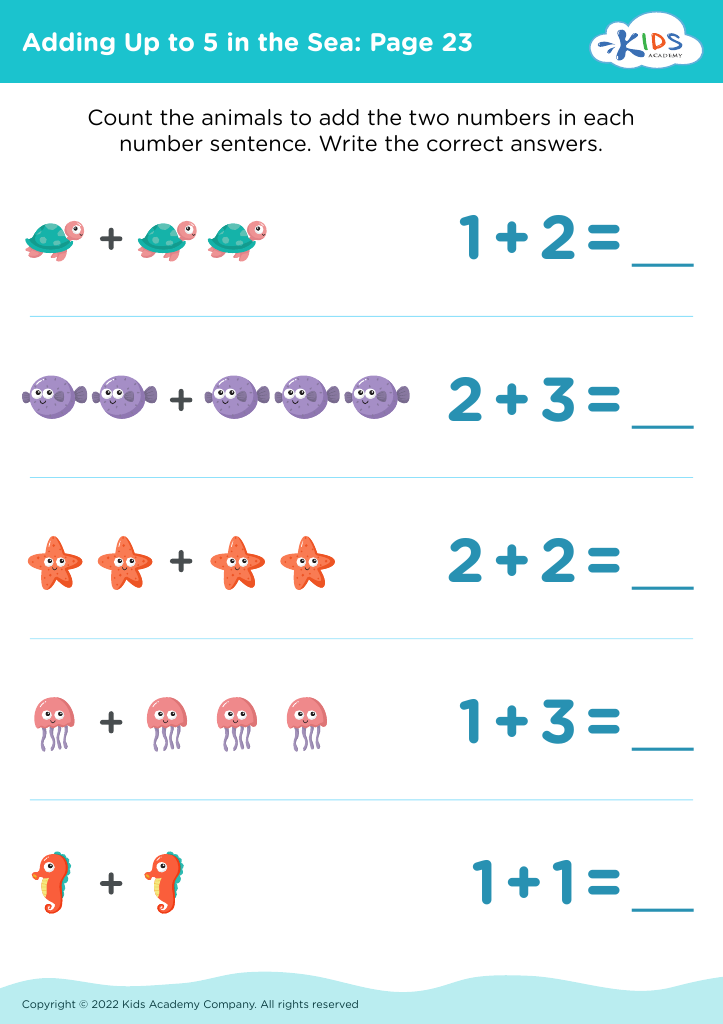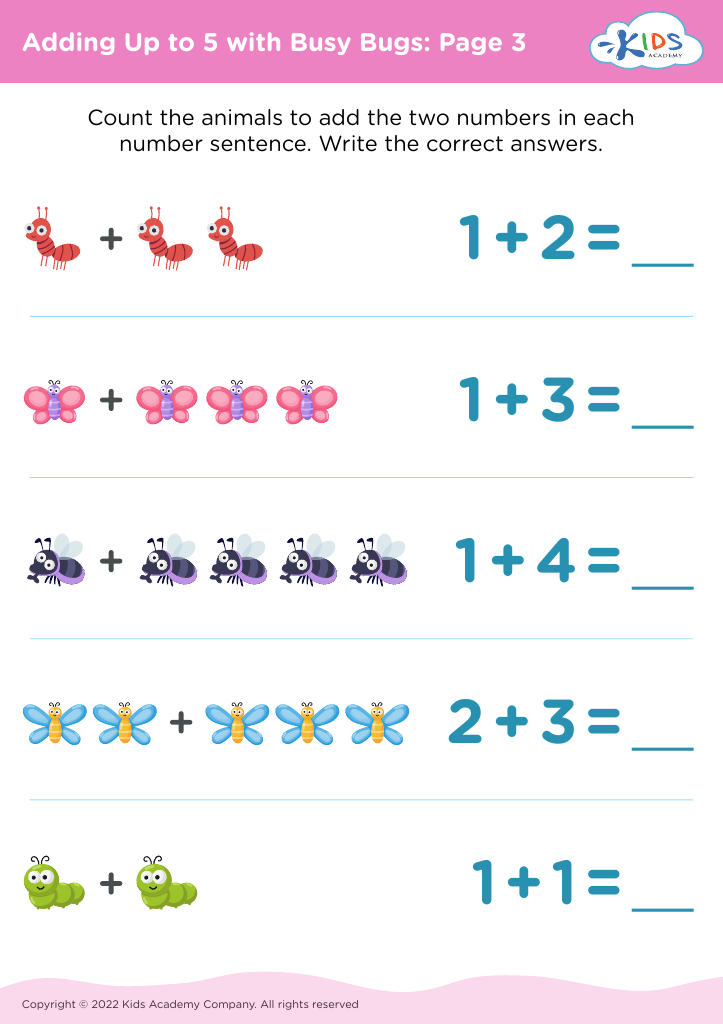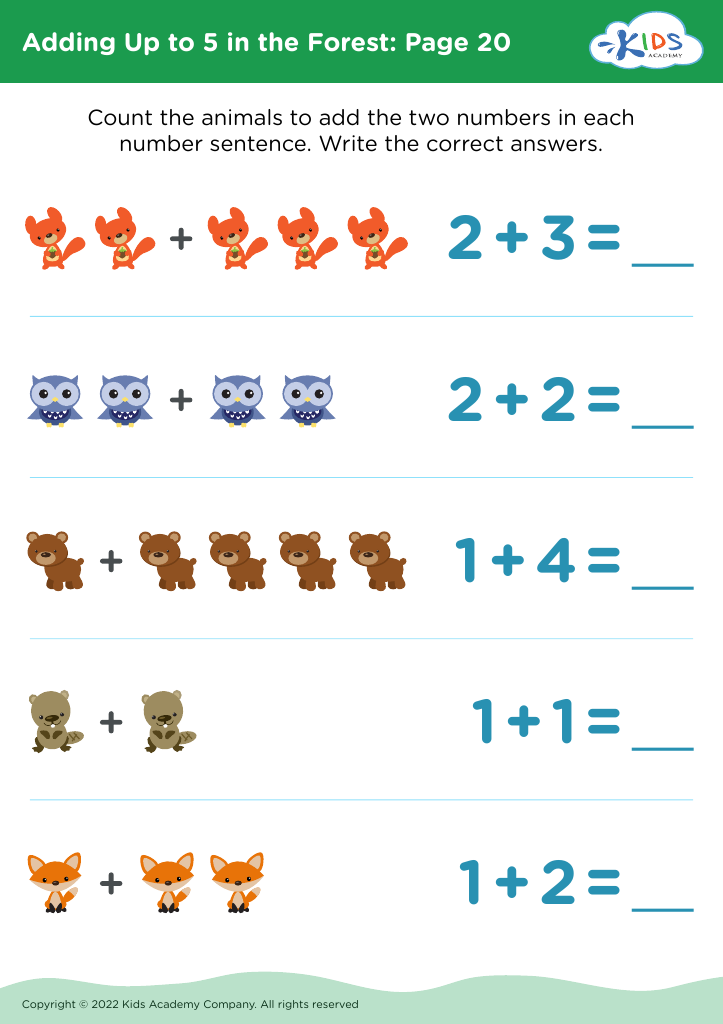Understanding numerical values Addition Worksheets for Ages 4-6
4 filtered results
-
From - To
Introducing our "Understanding Numerical Values: Addition Worksheets for Ages 4-6" – perfect for young learners beginning their math journey! Designed to support preschool and kindergarten kids, these engaging worksheets enhance numerical understanding and basic addition skills. With fun, easy-to-follow exercises, children become comfortable with counting and simple math concepts. Ideal for both classroom settings and at-home learning, these resources help develop a strong mathematical foundation. Encourage critical thinking and boost confidence as your child discovers the joy of addition. Visit Kids Academy to explore more and watch your little ones thrive in math skills!
Understanding numerical values and the basics of addition at an early age, especially for children aged 4-6, is crucial for laying the essential groundwork of mathematical literacy. At this developmental stage, young minds are exceptionally receptive, and introducing numerical concepts early sets a foundation for future learning.
Practicing addition aids in developing problem-solving skills and logical thinking, both of which are crucial for academics and everyday decision-making. By engaging with these fundamental skills, children start to comprehend patterns and relationships which, in turn, boosts cognitive development.
Furthermore, familiarity with numbers and basic arithmetic instills a sense of confidence and curiosity, inspiring kids to explore more complex mathematical concepts as they progress in their education. Early exposure can prevent math anxiety, often triggered by the sudden introduction of unfamiliar and abstract concepts in later grades.
For parents and teachers, fostering an environment that values and enjoys early math experiences also encourages a positive attitude towards learning overall. Using interactive and fun activities to teach addition ensures the learning process is engaging, thereby boosting social and fine motor skills. Understanding numerical values and basic math sets children on a path to academic success and critical life skills.

























